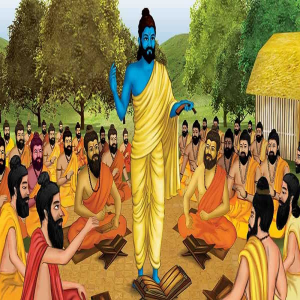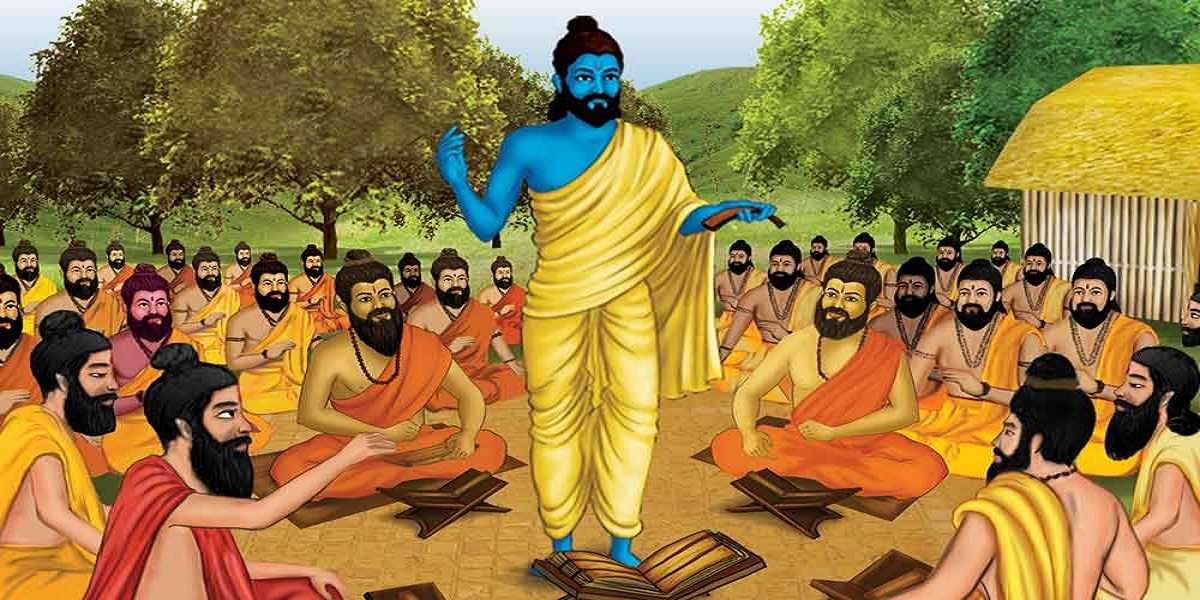
.png) Jacob Peenikaparambil
Jacob Peenikaparambil

September 5 is a significant day for both teachers and students in India. It marks Teachers' Day, celebrated on the birthday of Dr. Sarvepalli Radhakrishnan, the first Vice President and second President of India. The fact that Dr. Radhakrishnan was a great scholar and an excellent teacher lends special significance to this day.
Both students and teachers eagerly anticipate this day because it offers students the opportunity to express their respect and gratitude to teachers, who, in turn, feel recognised and appreciated for their contributions. It is also a day when the nation acknowledges the crucial role of teachers in nation-building by shaping responsible citizens committed to realising the vision of India as outlined in the Constitution, thereby contributing to a better world.
Teachers' day is also an occasion for reflecting on the evolving role of teachers. In a rapidly changing world, the processes and methods of education are undergoing revolutionary changes due to the pervasive influence of technology. The role of a teacher as an instructor is diminishing, especially in higher classes. With the vast amount of information available online and through social media platforms, students have access to a wealth of knowledge without needing a teacher. Online sessions and AI (Artificial Intelligence) tools further reduce the need for traditional instruction.
However, students today face numerous challenges. The increasing tendency among students to commit suicide, primarily due to intense competition in exams and job markets, as well as addiction to mobile phones, alcohol, and drugs, and rising crime rates among children and teenagers, highlights the need for guidance, support, and constant accompaniment.
In this context, the most crucial role of a teacher today is to become a mentor. In the ancient Indian system of education known as Gurukul, the guru, or teacher, primarily served as a mentor. Students lived with the guru, and the focus was on holistic education that emphasised building both character and competence. The guru was a role model for the core values that students absorbed during their education. A mentor guides by providing counsel and support while the mentee receives this guidance.
Becoming a mentor is challenging. First and foremost, a teacher must become a role model for students, particularly in practising human and ethical values. Like Mahatma Gandhi, a teacher should be able to say, "My life is my message." For example, teachers who smoke or consume alcohol will struggle to inspire their students unless they first eliminate these habits. Teachers should never compromise on core values such as honesty, integrity, and respecting the dignity of all human beings.
As mentors, teachers should understand their students as they are and accept their uniqueness. As the saying goes, "To teach Thomas English, one should know not only English but also Thomas." Therefore, teachers must recognise the individuality of each student and work to identify their unique talents and capacities. Teachers should be aware that every person is sent into the world with a unique purpose. In the Hindi movie Iqbal, there is a telling exchange between Iqbal's father and coach Mohit. When Iqbal's father refuses to allow him to pursue cricket, Mohit challenges him, saying, "We are all sent into this world to perform a unique task. Iqbal was born to play cricket." Similarly, teachers should help their students identify their unique strengths and develop dreams aligned with those strengths.
One of the reasons for increasing depression and suicidal tendencies among students is the fierce competition in exams and the job market. Students should be taught from an early age, "Compete with yourself, not with others; aim not to be the first, but to do your best." To be an effective mentor, a teacher must also be a facilitator. The root of the word "education" comes from the Latin word educare, which means "to draw out." A teacher's responsibility is to draw out or develop the latent capacities and talents of each student by creating a supportive environment. The classes taught by teachers should serve as a foundation for bringing out these hidden talents.
Providing emotional support and encouragement is another key responsibility of a mentor. Today, children face various forms of stress. Family problems often disturb them, and the competition to excel in academics, driven by high parental expectations, can make them tense. Teachers should be able to read the body language of their students and support them in relieving this stress. Every achievement of a student, no matter how small, should be acknowledged and appreciated. It is a well-known psychological principle that praise and encouragement should be given publicly, while corrections should be made privately. Correcting or reprimanding a student in front of others can cause significant harm.
To be an effective mentor, a teacher must be a good listener. When a student approaches a teacher for guidance during times of distress, the teacher should not immediately propose a solution. Instead, the teacher's task is to listen carefully and pay full attention. Ideally, the solution should emerge from the student through guided questioning.
Building trust and confidence in students is essential for effective mentoring. Students must trust that their teacher will keep their conversations confidential and that the teacher is capable of providing proper guidance.
To be a successful mentor, a teacher must possess the necessary knowledge and skills. It is said that knowledge doubles every three years; therefore, teachers must be continuous learners to remain effective in their subjects. In addition to updating their subject knowledge, teachers should be informed about current events both locally and globally. This requires regularly reading newspapers, news magazines, and books. During seminars for teachers, I often ask how many of them read newspapers daily without fail, and the response is usually less than 10%. Without awareness of current developments, teachers will struggle to guide their students. Similarly, without reading inspiring books, they will not be able to counsel their students creatively.
Teachers need certain skills to be effective mentors, including communication, problem-solving, and conflict resolution. A teacher should acquire as many skills as required to be a successful mentor. During the COVID-19 lockdown, teachers were forced to learn how to conduct online classes when schools were closed.
Teachers may naturally pay more attention to the smartest students. However, to be a mentor to all students, teachers must give special attention to slow learners and spend more time with them. The talents of the quick learners in a class can be utilised to help slow learners, fostering an environment of cooperation and mutual support rather than competition.
Some essential qualities for teachers to become excellent mentors include sensitivity, compassion, perseverance, and patience. Change in students may occur slowly, and in some cases, it may take a long time. Good mentors do not become discouraged or give up easily; they remain patient and continue their mentoring mission with hope and positivity. Creativity, which drives one to seek alternatives, is another essential quality for successful mentoring. Being available to students according to their needs also enhances a teacher's effectiveness as a mentor.
To be a mentor, a teacher must become a "spiritual person." Spirituality, grounded in the practice of human and moral values, is common to all religions and unites people of different faiths and nationalities. In contrast, religiosity, based on ritualism, legalism, and dogmatism, divides people and can lead to selfishness, arrogance, and even fundamentalism. Mahatma Gandhi's principles of non-violence and pluralism are particularly relevant in today's world, which is often marred by conflict, hatred, revenge, and violence.
Finally, teachers must have a holistic understanding of education to be effective mentors. In this context, Swami Vivekananda's definition of education is particularly pertinent: "We want an education that builds character, strengthens the mind, expands the intellect, and equips a person to stand on their own feet." The crisis in India's education system is evident in the large number of graduates and postgraduates who are not employable. According to the "India Graduate Skill Index: 2023" report, only 45% of Indian graduates who apply for jobs are employable. One of the reasons for the low quality of educational standards seems to be the reluctance of the brightest youth to enter the teaching profession. Without teachers of high competence and character, the quality of education cannot be improved.
At the beginning of the Enlightened Leadership Training conducted at USM, Indore, participants are asked to share their dreams for the future or what they aspire to become. In the majority of batches, not a single student chooses to become a teacher. Each year, of the 700 students from all over India who participate in leadership training, less than ten per cent express their option to become teachers. Various reasons may explain why the brightest youth are reluctant to enter teaching. At the same time, it is evident that teachers have not succeeded in inspiring their students to consider teaching as both a profession and a mission.
Our political leaders speak about making India a developed country and a Viswa Guru by 2047. This dream cannot be realised without millions of dedicated and competent teachers who become mentors to their students. Let the Teachers' Day Celebration in 2024 inspire teachers to become mentors and prompt the government to rejuvenate the education system by enhancing the quality of teacher training programs.